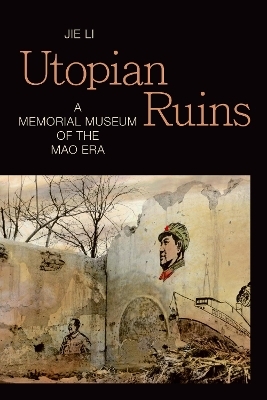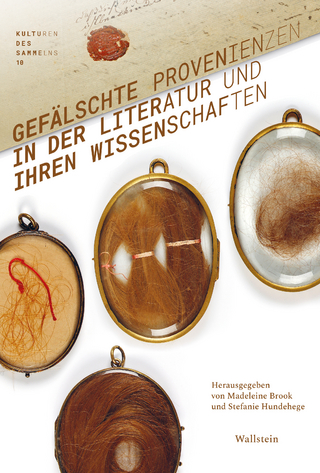
Utopian Ruins
A Memorial Museum of the Mao Era
Seiten
2020
Duke University Press (Verlag)
978-1-4780-1123-1 (ISBN)
Duke University Press (Verlag)
978-1-4780-1123-1 (ISBN)
Jie Li traces the creation, preservation, and elision of memories about China's Mao era by envisioning a virtual museum that reckons with both its utopian yearnings and cataclysmic reverberations.
In Utopian Ruins Jie Li traces the creation, preservation, and elision of memories about China's Mao era by envisioning a virtual museum that reckons with both its utopian yearnings and its cataclysmic reverberations. Li proposes a critical framework for understanding the documentation and transmission of the socialist past that mediates between nostalgia and trauma, anticipation and retrospection, propaganda and testimony. Assembling each chapter like a memorial exhibit, Li explores how corporeal traces, archival documents, camera images, and material relics serve as commemorative media. Prison writings and police files reveal the infrastructure of state surveillance and testify to revolutionary ideals and violence, victimhood and complicity. Photojournalism from the Great Leap Forward and documentaries from the Cultural Revolution promoted faith in communist miracles while excluding darker realities, whereas Mao memorabilia collections, factory ruins, and memorials at trauma sites remind audiences of the Chinese Revolution's unrealized dreams and staggering losses.
In Utopian Ruins Jie Li traces the creation, preservation, and elision of memories about China's Mao era by envisioning a virtual museum that reckons with both its utopian yearnings and its cataclysmic reverberations. Li proposes a critical framework for understanding the documentation and transmission of the socialist past that mediates between nostalgia and trauma, anticipation and retrospection, propaganda and testimony. Assembling each chapter like a memorial exhibit, Li explores how corporeal traces, archival documents, camera images, and material relics serve as commemorative media. Prison writings and police files reveal the infrastructure of state surveillance and testify to revolutionary ideals and violence, victimhood and complicity. Photojournalism from the Great Leap Forward and documentaries from the Cultural Revolution promoted faith in communist miracles while excluding darker realities, whereas Mao memorabilia collections, factory ruins, and memorials at trauma sites remind audiences of the Chinese Revolution's unrealized dreams and staggering losses.
Jie Li is Loeb Associate Professor of the Humanities in the Department of East Asian Languages and Civilizations at Harvard University and the author of Shanghai Homes: Palimpsests of Private Life.
Series Editor's Preface ix
Acknowledgments xiii
Introduction. Mediating Memories of the Mao Era 1
1. Blood Testament 25
2. Surveillance Files 68
3. Utopian Photographs 100
4. Foreign Lenses 150
5. Factory Rubble 192
6. Museums and Memorials 227
Epilogue. Notes for Future Curators 261
Notes 277
Bibliography 321
Index
| Erscheinungsdatum | 16.01.2021 |
|---|---|
| Reihe/Serie | Sinotheory |
| Zusatzinfo | 62 illustrations |
| Verlagsort | North Carolina |
| Sprache | englisch |
| Maße | 152 x 229 mm |
| Gewicht | 522 g |
| Themenwelt | Kunst / Musik / Theater ► Allgemeines / Lexika |
| Geisteswissenschaften ► Geschichte ► Hilfswissenschaften | |
| Geisteswissenschaften ► Geschichte ► Regional- / Ländergeschichte | |
| ISBN-10 | 1-4780-1123-8 / 1478011238 |
| ISBN-13 | 978-1-4780-1123-1 / 9781478011231 |
| Zustand | Neuware |
| Informationen gemäß Produktsicherheitsverordnung (GPSR) | |
| Haben Sie eine Frage zum Produkt? |
Mehr entdecken
aus dem Bereich
aus dem Bereich
Buch | Hardcover (2024)
Wallstein Verlag
CHF 53,20


